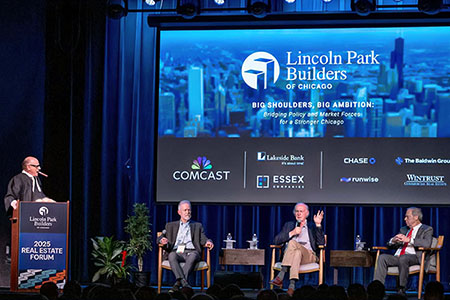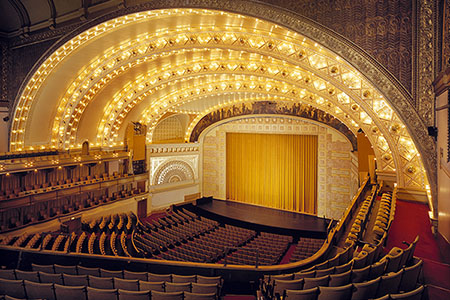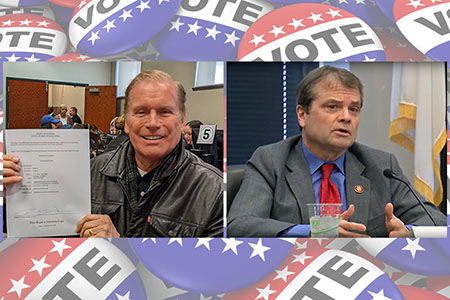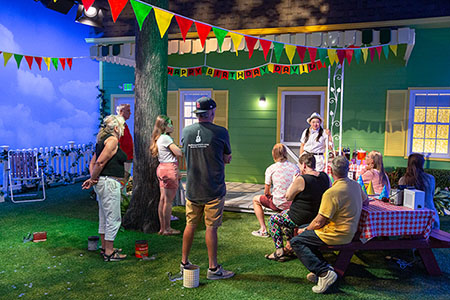175 E Delaware Pl
Nov. 7, 2023 – An accountant studying the finances of the condominium association at The John Hancock Center is accusing the association, its property management company, accounting firm, and a reserve fund consultant of “potential criminal activities” involving its reserve study and other financial documents. Michael Novak, a CPA with an MBA in Finance, says various types of fraud, along with federal and state income tax evasion, have occurred at the homeowner association dating back to 2015. Novak battled his Gold Coast HOA, State Parkway Condominium Association, in the latter years of the 2010s, over a variety of issues, including being cited for a “pet violation” for having a service dog. Novak is deaf.
Novak says reserve fund consultants hired by 175 East Delaware Place “engaged in deceptive practices” by recommending funding plans in 2017 and 2022 that Novak says were flawed and did not acknowledge “a significant uptick in the required reserves for critical property repairs and replacements.” He says the 2022 reserve study recommended a reserve contribution for fiscal year 2023-24 of $2.128 million but should have recommended a contribution of at least $4.256 million. He estimates that by 2052, the association’s liabilities and deferred assessments will surge to $85 million, with the shortfall paid by homeowner assessments.
Reserve studies merely ‘estimates,’ says HOA president The president of 175 East Delaware Homeowners Association calls the claims “unsubstantiated, misleading, and often nonsensical allegations without factual support.” In a letter to Novak, Scott Timmerman said the association had, at homeowner expense, retained legal counsel and auditors to check the allegations. “These allegations are an inept attempt to suggest that the HOA’s professional audit firm, the HOA’s counsel, the HOA’s reserve study provider, the HOA’s management company, and the HOA’s board are incompetent or corrupt,” wrote Timmerman. Timmerman defended the reserve studies, saying they are “estimates...based on many assumptions that are uncertain,” but “there is no basis” for Novak suggesting actual expenses will be significantly higher.
The managing principal of the association’s accounting firm denies Novak’s allegations at least as strongly. In a detailed and contentious letter, Ralph Picker, of Picker & Associates, defended its accounting and provided background on how income and liabilities are determined. Picker is a CPA and Certified Fraud Examiner. He says Novak’s claims are based on a difference of opinion regarding assessments, whether unit owners are considered “customers” of the association, and whether unused assessments for major repairs and replacements are considered equity or liabilities. “At present, there is substantial debate, diversity of thought, and confusion among CPAs relative to...assessment accounting, especially those assessments designated for future repairs and replacements of common property,” wrote Picker. “Each CPA who serves homeowners’ associations must interpret this new revenue standard and apply it based on his or her judgement and experience. No consensus exists amongst CPAs as to how this accounting guidance should be applied to homeowners’ associations.” He called the claim of income tax evasion “totally irresponsible,” explaining that tax avoidance “uses a legal method to lower the tax obligations of a taxpayer in accordance with prevailing tax law, regulations, court cases, taxpayer, and professional interpretations, etc.” New $250 late fee is punitive to unit owners, lucrative for HOA A new, higher late fee, implemented on April 17 by HOA president Scott Timmerman, continues to outrage unit owners at 175 East Delaware Place. Any past-due amount of $250 or more results in a $250 late fee.
Allowed to accumulate, the late fees, he says, are punitive. So far, 45 unit owners have been hit with the new late fee, including McManus. He says he was charged $250 for being $7.21 over the $250 limit, and late only because the association’s property management company, Sudler Property Management, set up his online account incorrectly. He says he missed a ten-day grace period after Sudler took eight days to send him a correct, current statement. Another unit owner over four months had account balances of $438.50, $765.07, $492.25, and $252.25, and was charged a $250 late fee each month, according to McManus. Novak says during the fiscal year that ended on August 31, the association made $41,250 from late fees. He says there was no formal vote by the condo board on the late fee. McManus says unit owners only learned of the new amount three days before it went into effect. “The most disturbing aspect is how the board president assumes they have the authority to simply change fee policies by decree and that three days’ notice is somehow acceptable or complies with [Illinois Condominium Property Act] regulations,” said McManus. The board’s legal counsel has defended the late fees. David Sugar, a partner at Saul Ewing LLP, told the board the ICPA authorizes associations to impose a late fee proportionate to the unit owner’s share of common expenses.
|


















